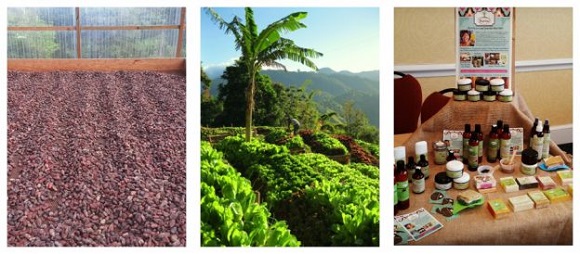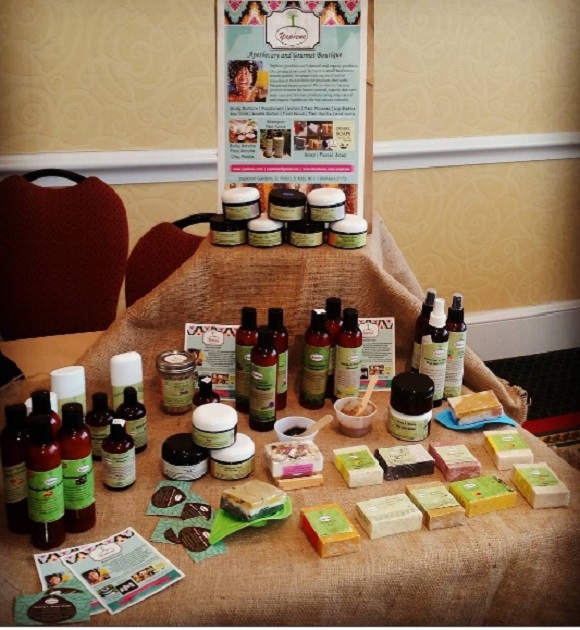Feeding the appetite for sustainable tourism

For the tourist hoping to experience authentic local cuisine on one of our famous golden beaches, they may be disappointed to know that only a small fraction of food in our hotels is provided by local farmers and fishermen, with the majority being imported from areas outside the Caribbean basin. Unfortunately, inconsistencies in quality and quantity of produce, natural disasters and limited access to inputs mean that our farmers are unable to meet the aggressive demands of the sector.
However, despite these challenges, there is a way for farmers and foreigners to take advantage of the fruits of our lands. Agro-tourism, a niche but growing market within the tourism industry, offers tourists an authentic experience embedded in local food and culture and combines “rural aesthetics” with agricultural production into a dynamic tourist package. It gives the traveller the opportunity to delve into environmental, cultural and agricultural activities. And, often nestled in verdant areas of low commercial development, the farmer can also create revenue. This seeding of the linkages between agriculture and tourism can be an opportunity for farmers who have been “left behind” to utilise their livelihoods to the benefit of themselves and their communities.
Strengthening the link: Tourism and agriculture
Nutrition, health and wellness are among global trends that have spurred the growth of agro-tourism, and the Caribbean is especially poised to take advantage of these benefits, given its climate produces a continuous growing season. It makes it easier for visitors to witness the movement of produce from “farm to fork”. For example, the Belmont Estate, in Grenada is a fair-trade certified business which offers a tour of the plantation where visitors are able to witness chocolate production. Woodford Market Garden, a small organic farm in the Blue Mountains of Jamaica, also provides a guided tour of its plant nurseries, open field plots and edible garden. In realizing this potential, policymakers across the Caribbean have formulated a regional strategy which seeks to provide the visions, goals and targets necessary to capitalize on the opportunities available to both tourism and agriculture. As a result, many institutions have been able to provide unique services to their guests effectively and have further been able to maintain successful and sustainable business models.
Yet despite these accomplishments, there is a specific group that represents an even greater opportunity for growing sustainable agriculture: youth.
The role of youth in ‘A-grow-tourism’
As in many parts of the world, the number of young people considering a future in agriculture sadly remains low, with many put off by the high risks and low levels of investment. Nevertheless, there are several worthwhile initiatives to help young people enter agriculture. The Caribbean Agriculture Forum for Youth (CAFY), the FAO/FIDA-Youth Caribe, the 4H Initiative, YPARD Country Chapters and IICA’s Virtual Business Incubator and Resource Hub for Caribbean Youth are among the programs and platforms that provide information and knowledge to young farmers and agropre- neurs across the Caribbean on the essential steps to becoming involved in and creating agriculture-based businesses.
And young people have a crucial role to play in helping to build the growing agro-tourism industry. With the majority of the world’s food being produced by ageing smallholder farmers, the next generation are more likely to adopt new, innovative ideas that have the potential to attract touristic interest and investment. Technology is one of the greatest tools of youths and Tech4Agri, a youth driven online media startup based in Trinidad and Tobago, is a testament to this. The platform helps realise the multitude of technological applications in agriculture and supports the development of young agropreneurs by providing an interesting and innovative agri-information service. Young agropreneurs could also develop similar platforms to promote agro-tourism, utilizing the internet for activities such as video blogs showcasing testimonials, meal preparations and on-farm activities, which can then be the basis for their marketing strategies.
The youth of the Caribbean is also perfectly placed to capitalize on the beauty and tranquility associated with agro-tourism, showcasing their talents in creating natural, organic, beauty treatments from the “fountain of youth”. Yaphene, a gourmet boutique based in St. Kitts, makes organic hair and skin care products using natural butters, oils, dried and fresh herbs and its vision is to become the island’s premier natural beauty product producer. Ibis Beauty Box is another modern, natural botanical skincare line that embodies the rich heritage of the Caribbean. Its inspiration stems from the indigenous and local Caribbean flora and the urge to create an extraordinary natural, organic and lifestyle brand.
While technology and beauty are important factors to consider, guests are often most intrigued by the delicious dishes that form the gastronomic component of agro-tourism. Taste of Eden, a business located in Paix Bouche, a village in Dominica, produces green seasonings and herbal tea bags. Tahomey Chocolate Company based in Haiti provides ongoing income for an estimated 50 people, and Dada B’s, a Jamaican based business in value-added agricultural products is seeking to become one of the Caribbean’s largest agricultural producers and food manufacturers (Caribbean 360, 2016). All three businesses are currently owned by young agropreneurs who stand to benefit from tourists’ desire to experience food being moved along the chain from the farm to final packaging. Chefs for Development, an effort being spear- headed by IICA and CTA further seeks take advantage of this by training young local chefs in both using and promoting local ingredients to prepare high quality dishes. Given such start-ups, it is evident that not all youth across the Caribbean have given up on agriculture; many are putting their time and effort into realizing their dreams. For the unconverted youth however, it is important to promote a change in the way agriculture is currently being perceived by increasing the awareness of different subsectors such as agrotourism and the opportunities that these markets hold for the youth.
While sensitization and improving awareness of opportunities are critical, targeted training will also prove useful in building skills in the sub-areas related to agriculture. Such training may encourage the youth to be more involved as it helps to view agriculture as more than just a mere farm but as a viable business. For these businesses to be able to materialize, governments should invest in their young agropreneurs by producing incentives, low interest loans and startup capital to these young business enthusiasts. Paolo Silveri, IFAD’s Country Programme Manager responsible for the design of the FAO/FIDA-Youth Caribe programme, said: ”With youth unemployment rates that are among the highest in the world, reinventing the role of Caribbean youth in agriculture is critical both for the region’s future and, more importantly, for young women and men themselves.”( FAO, 2015).
Agrotourism could well hold the greatest potential to increase the involvement of the youth in agriculture, opening up innovative and creative opportunities to build successful and sustainable businesses. Where there is a supportive environment, the youth will be able to find groundbreaking ways to create a future for themselves while contributing to the overall well-being of their communities.
Photo collage credit (l-r):
Belmont Estate IICA/CTA,2015
Fermented beans on display during the chocolate tour at Belmont Estate
Woodford Market Garden Woodford Market Garden, 2016
Lush green vegetables in the gardens at Woodford
Yaphene Yaphene n Flauriel Foods, 2016
Soaps, oils and lotions from the Yaphene line
This blogpost by Jhannel Tomlinson the YPARD country representative for Jamaica originally appeared on the Farming First website.
Related Posts
Comments
By accepting you will be accessing a service provided by a third-party external to https://archive.ypard.net/

